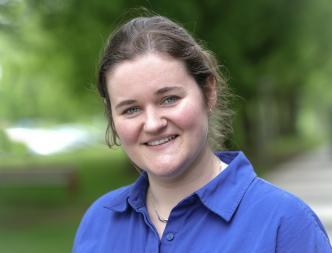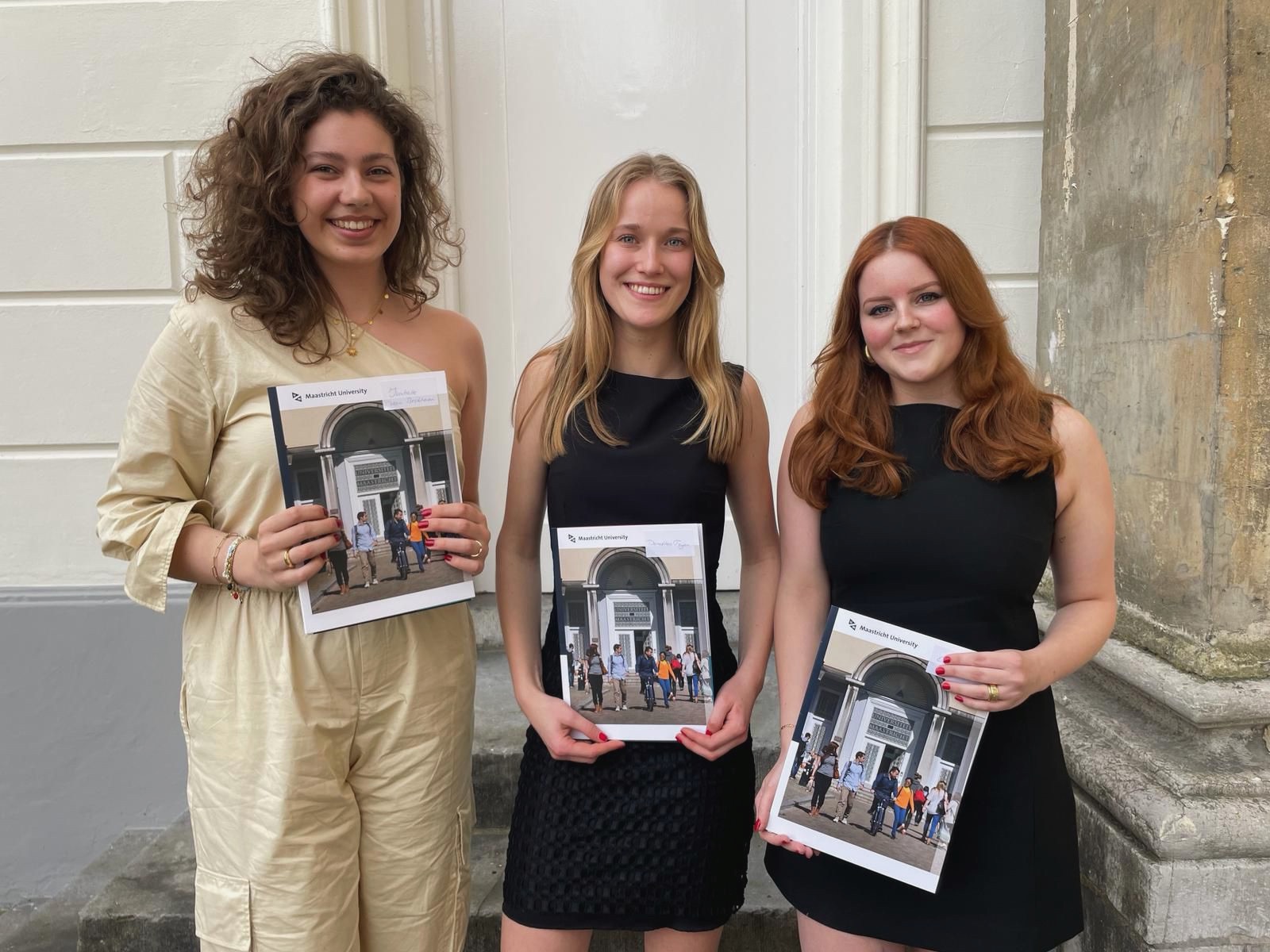Learning to collaborate in healthcare
As a patient in a hospital, you see many different faces at your bedside every day: a nurse measuring your blood pressure, a doctor or nurse practitioner informing you about the care plan, and a nutritionist providing you with the right food and drinks. Although all these caregivers have their own roles, ultimately, patient care is a collective effort. To ensure patient safety, it is important that they all collaborate well, but this is easier said than done. Collaborating in healthcare is something you need to learn!
This article was originally published by FHML
At the School of Health Professions Education (SHE), Juliët Beuken is researching how healthcare professionals learn to collaborate with each other in practice, and all the challenges that come with it. She investigates this with the concept of multiperspectivity, emphasizing the different viewpoints of healthcare providers. If you understand that each healthcare provider has a different perspective on care, then you can use that to improve care and promote collaboration among healthcare providers. Together with colleagues ‘on both sides of the bridge’ (referring to the walkway between the faculty and the hospital) Juliët explores collaboration among different healthcare providers (interprofessional collaboration), but also with patients, who naturally have their own perspective on care.
"If possible, as a healthcare provider, you also collaborate with the patient."
Why is collaboration in healthcare such a challenge?
During her doctoral research on healthcare across borders in the Euregion Meuse-Rhine, Juliët noticed that collaboration is a major challenge. In interviews, healthcare providers shared what makes (international) collaboration difficult: different languages, procedures, trainings, systems, and cultures. Needless to say, also the high workload in healthcare plays a role. Healthcare providers mainly want to ensure that they have fulfilled their own responsibilities. They often do not consider how they can collaborate better with colleagues across the border, with whom they care for patients together.
Juliët says, "The challenge of collaboration in cross-border healthcare is that healthcare providers from different countries need to get to know each other and understand each other's ways of working. Only then can they adapt to each other. This is a complex process and it takes time. Moreover, every collaboration is different, so you are never done in one go."
Collaboration across borders intensifies challenges that also occur in collaboration within borders, and even within one organization. Because within the walls of the hospital, there are already differences between healthcare providers. Juliët is convinced that healthcare providers can learn from other perspectives by practicing in healthcare practice and in health professions education. Many healthcare providers are naturally empathetic, and almost everyone recognizes the importance of good collaboration in healthcare.
"We mainly need to develop good education to support this process of collaborative learning."
Learning to collaborate
Collaboration is something healthcare providers still learn far too little about. One of the challenges Juliët observes in her research is that students are often trained separately. During their studies, they learn about their own role in healthcare - what, when, and how things should be done - without understanding how that relates to the roles of other healthcare providers, or to the healthcare system.
"It's a bit like being a choir singer learning your own melody, and only finding out during the concert what other singers are chanting. Then you're actually too late to really learn how to sing together well."
Research into healthcare education also often remains limited to one specific programme. Medical education is often the focus of university research because it is familiar territory: that programme is literally and figuratively close by.
Additionally, research into other programmes often focuses on one group of healthcare providers: nurses, psychologists, physiotherapists, midwives, or caregivers. By mainly focusing on specific programmes, you miss insight into how to prepare these professional groups well for collaboration in healthcare practice.
Interprofessional education
A good solution to this challenge is interprofessional education, where students and healthcare providers from different professions learn together. This way, they not only see how their different roles contribute to patient care as a whole, but also how they can collaborate with each other in patient care. Fortunately, this already happens quite often, but this type of education is mostly brief: with a half-day workshop or a two-hour training, you can only move a small stone in a river. Moreover, in such a short time, it is difficult to address challenges such as hierarchy. When interprofessional education becomes a larger part of the curricula, students and healthcare providers can truly get to know each other. This way, they are much better coordinated before entering healthcare practice, which hopefully improves the quality of patient care.
Learning together in healthcare practice
There are also opportunities for healthcare providers to learn together in healthcare practice. In collaboration with colleagues at MUMC+, Juliët Beuken has developed several educational activities where healthcare providers engage in conversations about collaborating in healthcare. During these discussions, they naturally talk about situations where things did not go well. What if there is a miscommunication between healthcare professionals about the status of a patient, putting patient safety at risk? Indeed, within different healthcare professions, the answer to the question "how is the patient doing?" can vary, while the patient in question is the same person. What does that difference in perspective mean for the patient's treatment? Additionally, it is important to look at what goes well. What constitutes effective collaboration, and how can healthcare providers do that more often?
"Healthcare professionals need to continue discussing how they collaborate with each other in their daily work. We can support that, for example, by questioning each other's perspectives on a case during a workshop. Why do you see this differently than I do?", Juliët explains.
Through workshops, healthcare providers can learn from each other: learning from examples of excellent interprofessional collaboration that emerge through conversation, but also learning from mistakes in healthcare so they can be prevented in the future.
Collaboration in healthcare is in everyone's interest
Good collaboration contributes to good care, for both the patient and the healthcare provider. When healthcare providers engage in genuine conversations with patients about their care, patients feel invited to share how they are doing, ask questions, and express any concerns. They, like healthcare providers, have a unique perspective on what good care entails, as Juliët learned from interviews with patients. Learning to collaborate with the patient is therefore essential for good care.
For healthcare providers too, good collaboration has many benefits. If you understand and trust each other, and enjoy the work you do together, that naturally contributes to your well-being.
Juliët hopes that the importance of learning to collaborate is recognized and that the educational ideas of her and her colleagues are further developed so that they can ultimately be applied in various forms, in healthcare education and practice, and especially for many different healthcare professions.
"In the end, as with choir singing, the beauty lies in our differences and what we accomplish together," Juliët concludes.
Also read: Beuken, J. (2022) “Waves towards harmony: learning to collaborate in healthcare across borders”

Juliët Beuken (she/her) was born in Hoorn, in the heart of West-Friesland ("not in Friesland, but to the west of it, above Amsterdam," she adds with a laugh). There, she lived her entire childhood with her parents (both with backgrounds in nursing) and her younger sister.
In 2011, she went to study in the Dutch capital at the VU, although her father would have preferred her to go to the UvA, where he had completed his own education. At the VU, she initially pursued a bachelor's degree in Health and Life Sciences, a combination of biomedical and health sciences ("well, I didn't make it into medicine..."). She quickly realized that working in a laboratory was not her cup of tea. "In the lab, you have to work very precisely, follow all the steps exactly right. A creative twist is not really appreciated there." Courses that highlighted the various aspects of healthcare, on the other hand, did pique her interest.
Therefore, she focused on the social aspects of health sciences. In 2014, she started the Master's programme in Management, Policy Analysis and Entrepreneurship in Health & Life Sciences (VU) that she successfully completed in 2016. During this programme, which mainly focused on organization, policy, and prevention in healthcare, Juliët did several internships in the field of education and training for healthcare providers, which sparked her interest in this field. This led Juliët to leave the north of the Netherlands in 2017 for the capital of Limburg, where she began her doctoral research at the School of Health Professions Education at Maastricht University. In 2022, she defended her dissertation titled "Waves towards harmony: learning to collaborate in healthcare across borders."
After completing her doctoral trajectory, Juliët worked as a postdoctoral researcher on a project in the field of patient safety and education in the Euregion Meuse-Rhine, as part of the Interreg project COMPAS. She is currently employed as an assistant professor at the Department of Educational Development and Research (EDR) and the School of Health Professions Education (SHE), and she is part of the Taskforce Faculty Development.
Juliët Beuken is a musical person with a passion for singing. As a toddler, she was part of children's choir De Merels, and in high school, she participated in musicals with Kids on Stage. Nowadays, she sings as an alto in the Maastricht University Choir. Music is a source of inspiration for her work, as can be seen on the cover of her dissertation, which she designed herself.
Also read
-
The Honours programme is an extracurricular activity for bachelor’s students in year 2 and 3 to showcase their academic skills and teamwork in a real-life project. We talked to Emma van Straten, a Health Sciences student and Honours alumna who organised an international conference on Lama2 in...
-
The University Council of Maastricht University (UM) is holding a confidential today.
-
The Executive Board Executive Board and the University Council of Maastricht University (UM) met today and discussed both the protests at UM and the underlying issue of international cooperations.

